Questions to Ask Yourself to Find Out Who You Are
Every person has his own moments in life where you stop and assess where you are and where you are proceeding to. Most times, these self-assessments come as a mighty but straightforward question. These questions have power, significant power, and imaginative power. And by forwarding these questions to yourself, you will get thoughtful replies from yourself.
If anyone asked you, "Do you know who you are?" you would certainly reply instantly with, "Yes, I do!" We all recognize ourselves to a certain level, but we are continually maturing and transforming, and subsequently, we're not giving consideration to who we are and what matters to us. We are regularly too full of activity to care about enquiring the core of who we are, however, valuing oneself and understanding who you are is a vital part of loving yourself.
You should be aware of the personal question to ask people in order to find out your real self. Realizing what you are, what you want, where you’re going, are vital to keeping you in check. You need to find out about your life importance, objective, determination, commitment, self-actualization, and excitement. A keynote to find out your real self is self-knowledge because as the Fifth Splendid Truth affirms, you can build a great life only on the basis of your own nature.
One way to do this is to be conscious of the questions you ask yourself when faced with a verdict or when you are undergoing something you don't desire. According to self-help specialist, Tony Robbins, he stated that the difference between negative and positive people is in the questions they ask themselves. Some issues are inspiring while some are discouraging. When you want to find out who you are you may ask some questions like this to find the crux of the problem.
What do experts say?
One way to do this is to be conscious of the questions you ask yourself when faced with a verdict or when you are undergoing something you don't desire. According to self-help specialist, Tony Robbins, he stated that the difference between negative and positive people is in the questions they ask themselves. Some issues are inspiring while some are discouraging. When you want to find out who you are you may ask some questions like this to find the crux of the problem.
Do I like who I am?
Do I like the people around me?
Whether I have a positive outlook and passion for life?
Are the people in my social circle have a positive influence on my life?
What makes me happy?
What makes me happy?
What do I love?
What do I hate?
What do I wish for?
What is your burning ambition?
What is my fear?
What am I hiding?
What am I afraid of?
What am I most proud of?
What brings out the best in me?
What do I like?
What am I good at?
What matters to me?
What would my perfect day look like?
What brings out the worst in me?
What am I avoiding?
What prospects should I explore?
Why do you do what you do?
What drives you?
Am I who I want to be?
What do I admire in others?
After replying these questions, you can also ask yourself "why?" for each question. This will give you a greater perception to what you feel and think about yourself. Your aim is to create a strong picture of who you think you are, so you can then become more in tune with your needs, ideas, ambitions and your potential career. The subsequent stage is to work on achieving who you are.
Achieving self- knowledge
You might be a bit speculating on how does one work about achieving this self-knowledge? The technique is to recall that you already have all of the information inside you, but then you need to access it. And that's the complicated stage. According to reports from Psychobook, the greatest way to find out who you are is to participate in activities that will make you think and reflects about the questions above. It demonstrates how these activities will make you answer all the questions.
This article assesses a model for showing how the aspect of your personality is best answered by yourself. Earlier research proposes an irregularity in the precision of behavior verdicts. It shows that some qualities of character are identified better by self than others. According to the self-knowledge model portrayed here, answering those questions yourself will be more accurate than others for qualities low down in observability, while others will be more precise than self for behaviors high in logical reasoning.
Relevance to 20 Questions about self-knowledge
In the present study, 20 were asked these questions in order to prove their self-knowledge while they were also rated by 4 friends and up to 4 strangers in a smooth-edged design. Uniform with the model result, the self discovers the best answers to neuroticism-related personalities, friends were the best judges of intellect-related behaviors, and individuals of all viewpoints were similarly good at assessing extraversion-related behaviors.
However, several social psychologists believe there are further stories of inaccuracy than simple lack of data, lack of perception, or unplanned error. The significance of the field, agreeing to Dr. Freud research, accepts that reflex vindications and alterations methodically weaken the correctness of self-knowledge. According to this opinion, we can’t look at ourselves in the mean beam of neutrality. If we could vision ourselves as we really are, we’d be too stunned to perform.
This brings about a fascinating prospect. If the justifications and blind spots are a function of the self-worth, then these defenses should not matter to the perceptions altered. Another individual, who does not have a claim in your character, can identify and judge you more accurately. That’s just the hypothesis clearly. For years, the practical outcome has been that self-ratings and other-ratings are about similarly logical, and if there’s any alteration, self-ratings has the advantage.
Law of Cause and Effect
The perception that we have advantaged and open contact with ourselves which we certainly identify in many ways such as who we are, what we do, how we feel, and what we think is very fascinating. At this time, they review three main proof about the accuracy of self‐knowledge of personality and it was later inconclusive. Firstly, studies linking self‐knowledge of character to impartial standards propose that self‐knowledge are at least fastened to genuineness and people are not totally ignorant about how they behave, but they are far-off from flawless. Secondly, studies exploring how well people’s self‐knowledge to integrate with others’ views of them propose that people’s self‐opinions are not entirely out of synch, but they are seen by those who know them best. Lastly assessing, studies examining whether people are aware of the influences they make on others propose that people do have some reflection of intuition into the fact that others see them in a different way than they see themselves. The results from all three methods point to the assumption that self‐knowledge occurs but leaves something to be anticipated.
Furthermore, according to reports from the Law of Cause and Effect, it testifies that if you release great opinions about yourself complemented by good exploits, you will obtain great things. Asking yourself stimulating questions encourages good ideas and allows self-reflection. It helps you preserve a mindful knowledge of who you are, what you are doing, and where you are. This mindful understanding is vital in life and unlocks doors for many great things.
Conclusion
If you’re someone who usually doesn’t self-reflect, you might be perplexed by these questions. Nevertheless, this is seamlessly normal. It doesn’t count if you become confused in the beginning, or if you can’t identify the responses to the questions at the outset. The more you inquire, the stronger your mind will stay, and the more you are likely to receive the answers.

